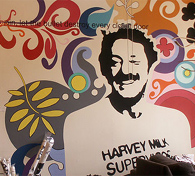A Taiwanese politician and former Democratic Progressive Party (DPP) chairperson Shih Ming-teh (施明德) recently asked the DPP presidential hopeful Tsai Ing-wen (蔡英文) to make her sexual orientation public. Despite publicly stating his support for the lesbian, gay, bisexual, transgender (LGBT) community, his blatant lack of respect for Tsai’s right to privacy (whatever her sexual orientation is) can only be interpreted as discriminatory, and an attempt to sabotage her campaign and has nothing to do with public interest.

I argue that Shih’s remarks are discriminatory on the grounds of sexual and gender rights for several reasons. First, on individual level, coming out is a personal choice and should not be mandated by others. Second, on a social level, the issue of coming out should be discussed in a social context. To be an openly LGBT individual in a society that continues to stigmatise and discriminate against LGBTs can be a challenging experience no matter one is regular person, star, celebrity or politician. Is it acceptable to demand to know if someone is HIV positive? Surely we would be able to predict how such a query will be construed. Not recognising the bigger picture of the implications of demanding an individual to come out shows no gender sensitivity on LGBT issues.
That said, we too need to ask ourselves why the issue of sexual orientation is being used time and time again for political gain. The sensitive nature of one’s sexual preferences can be seen from how it has affected both the Chinese Nationalist Party (KMT) and, more recently, the DPP.
I believe the fundamental reason is that Taiwanese society has and continues to avoid public discussions relating to sex. As a result, we are now moving in the direction of becoming an increasingly “desexualised” society. Sex has become a taboo: Naked bodies cannot be viewed, gays and lesbians should stay at home and not go marching in the streets, and TV news reports about sex education are pixelated.
However, people still crave for it. The more something is forbidden, the more alluring it becomes and the more gossip it attracts. To solve this situation where sex and sexual orientation continue to have a strong hold in our society, we have to seriously think about why sex cannot be openly discussed in Taiwan.
The famous Italian author and semiotician Umberto Eco in his commentary on WikiLeaks, “Not such wicked leaks,” asked: “How can a power hold up if it can’t even keep its own secrets anymore? ... It is also true that anything known about [Italian Prime Minister Silvio] Berlusconi or [German Chancellor Angela] Merkel’s character is essentially an empty secret, a secret without a secret, because it’s public domain. But to actually reveal, as WikiLeaks has done, that [US Secretary of State] Hillary [Rodham] Clinton’s secrets were empty secrets amounts to taking away all her power. WikiLeaks didn’t do any harm to [French President Nicolas] Sarkozy or Merkel, but did irreparable damage to Clinton and [US President Barack] Obama.”
What Eco meant is that when things have been exposed to sunlight, nothing is secret and no one can gain power from secrets. Those politicians who control their power and manipulate the public through secrets are no longer powerful when that secret is exposed.
I am not saying that Tsai should respond to Shih’s request. What I mean is that supposing one day sex is no longer a secret nor a taboo in Taiwanese society and discussion is open and natural, then nobody would be interested in exposing or gossiping about other people’s sex lives, sexual orientation or gender identity — who would want to know such everyday things? No one.
Like Eco said by quoting Georg Simmel in his commentary: “A real secret is an empty secret.”
Sexuality can be used as a mirror to examine social reality: Is this society really accepting of different sexual orientations or is it just a pretence in the name of tolerance? If one day, sex or sexual orientation is no longer a secret and there is no bias or discrimination against sexuality and sexual orientation in Taiwan, it would be impossible to use people as tools in political rivalry or for politicians to manipulate others. However, before that day comes, no one has the right to force others out of the closet, because that not only violates privacy, it is also a matter of structural discrimination against sex and gender rights.
Ashley Wu is the Director of International Affairs, Taiwan Tongzhi Hotline Association; ILGA-Asia Board Member and PhD student at The Center for Human Rights Studies and Social Development at Mahidol University, Thailand. A version of this column was first published in the Taipei Times on April 25.
